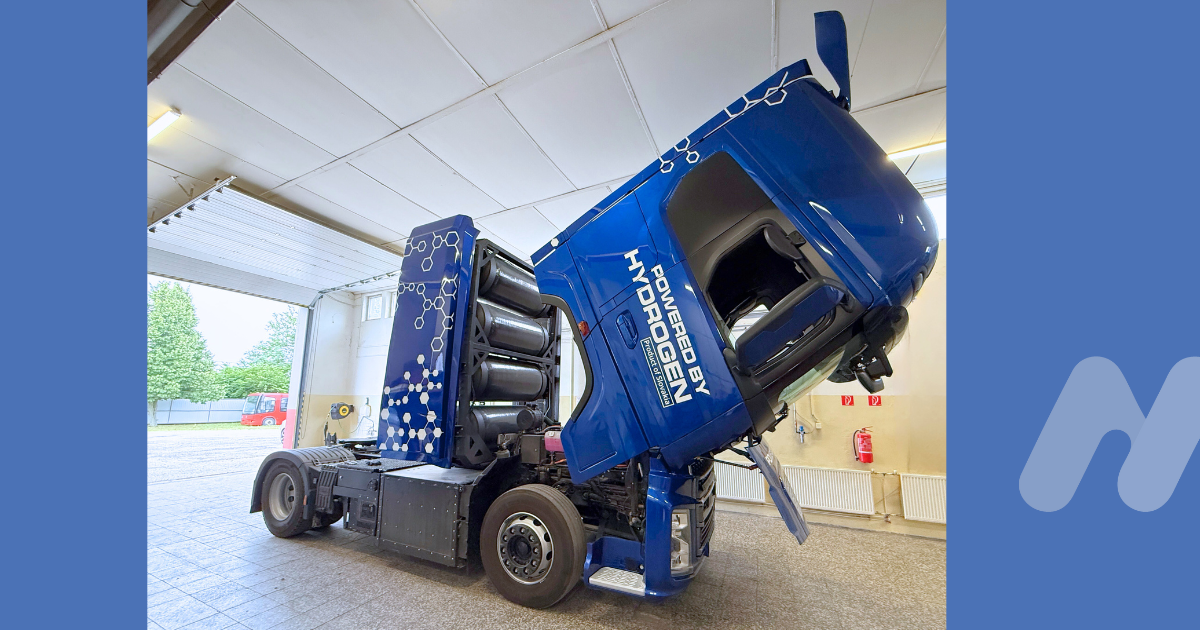How is a hydrogen truck serviced?

Hydrogen vehicles are slowly finding their place in commercial transport. But beyond performance and range, there is also increasing talk of practical issues:
– what is involved in their maintenance?
– who can service them?
– how different is servicing a hydrogen truck from a regular diesel truck?
What does servicing a hydrogen vehicle consist of?
In many ways, this is a standard process. Regular fluid changes, brake, chassis and light checks are maintained. What is new is the hydrogen powertrain – specifically its three key components:
- Fuel cell – requires control of power, cooling and electronics.
- Hydrogen tanks – subject to visual inspection and periodic pressure testing.
- Hydrogen pipes and valves – must be tight and reliable, especially in extreme conditions.
Software is also an important part of the service – updates to the control unit, reading diagnostics and testing the entire system.
What’s different compared to a conventional diesel vehicle?
Many elements remain the same: cab, frame, axles, tyres. What’s changed is the powertrain – where instead of an internal combustion engine, we find a fuel cell and an electric motor.
The biggest difference? Working with hydrogen requires a greater emphasis on safety, trained personnel and certified procedures.
Safety standards and practice
Hydrogen is a very light and volatile gas. Therefore, any handling must be strictly controlled. All servicing work is carried out according to the applicable standards (e.g. ISO 19880-1), with emphasis on:
– Proper ventilation of the premises.
– Shut-off and pressure valves.
– Hydrogen concentration monitoring.
– Protective work equipment.
Every technician must be trained to work with high-pressure hydrogen.
Real experience of MIP
As part of our hydrogen tractor testing, we’ve dealt with a number of common and exceptional situations – from replacing the windshield to updating the firmware to fine-tuning the cell’s cooling during hot weather.
The service was carried out in cooperation with our technical partners and showed that with good preparation, the maintenance of a hydrogen vehicle is no obstacle.
Conclusion
Servicing a hydrogen truck is complex but manageable. It is based on many years of experience with electrical systems, supplemented by the specifics of working with hydrogen. The keys to success are trained professionals, the right equipment and an emphasis on safety.
Here again: the hydrogen future is not science fiction. It’s a technology that is already running today, and can be repaired.
We also recommend reading:
- Why hydrogen pays off today: infrastructure grows with technology
- Public service and hydrogen technology: how innovation can improve quality of life
- Hydrogen technology testing and certification: a look behind the scenes